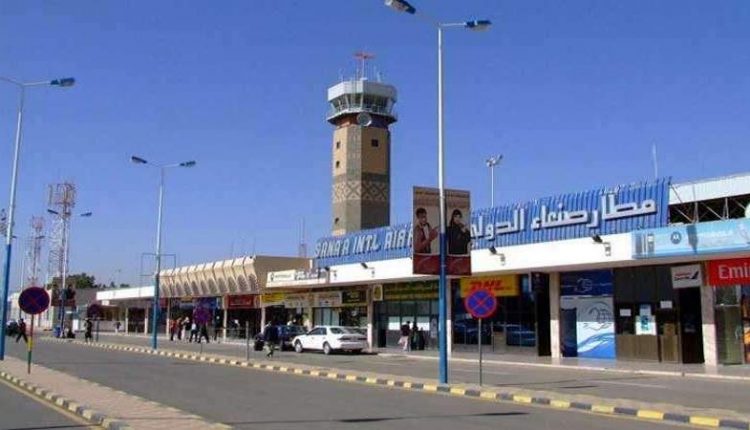Two Weeks of Truce, US-Saudi Aggression Continues to Ignore Its Commitments with UN Encouragement
Although two weeks have passed since the start of the UN-sponsored truce between Sana’a and the Saudi-led aggression, which requires the partial opening of Sana’a Airport and the lifting of restrictions on the port of Hodeidah, the airport is still completely closed to commercial flights.
Meanwhile, the forces of aggression continue to arbitrarily detain oil ships in the Red Sea, which Sana’a considers an indication of the truce’s tendency towards “failure”, which in turn confirms the continued complicity of the United Nations with the countries of aggression.
The truce, meant to halt all military operations in the country and bring the foreign military invasion to an end, came into effect at 07:00 p.m. local time (1600 GMT) on April 2.
UN Secretary-General Antonio Guterres said the truce “must be a first step to ending Yemen’s devastating war,” urging the warring parties to build on the opportunity to “resume an inclusive and comprehensive Yemeni political process.”
The deal stipulates halting offensive military operations, including cross-border attacks, and allowing fuel-laden ships to enter Yemen’s lifeline Hodeidah port and commercial flights in and out of the airport in the capital Sana’a “to predetermined destinations in the region.”
The Director General of Sana’a International Airport confirmed on Friday that “the airport is still closed, despite the passage of two weeks since the announcement of the truce and its entry into effect.”
It was supposed to operate four commercial flights from Sana’a Airport during the two weeks, according to the truce, but the coalition of aggression still refused to implement its commitments in this regard, in an open and flagrant violation of the agreement.
Sana’a had stressed the priority of opening Sana’a International Airport during the visit of the UN envoy Hans Grundberg, a few days ago. He expressed optimism, which turned out to be for media consumption and nothing more, as the coalition of aggression still insists on refusing to implement its commitments amid a flagrant UN silence.
In an additional clear violation of the truce, the coalition of aggression pirated, on Thursday, a new fuel ship that was on its way to the port of Hodeidah.
The spokesman for the Yemen Petroleum Company, Issam Al-Mutawakil, said that the forces of aggression had seized a diesel ship, which carries 29.976 tons, despite its inspection and obtaining the UN permits.
This brings the number of fuel ships detained by the coalition of aggression to three, with a total tonnage of 88,439 tons of gasoline and diesel.
The detention of fuel ships while continuing to close Sana’a Airport clearly expresses the absence of any intentions by the coalition of aggression to make the truce a success, as well as turning it into an entrance to peace. It sheds light on the reality of the UN position that is complicit with the coalition of aggression. It seems that the international organization is also dealing with the agreement as an opportunity to circumvent the requirements of actual peace and gain time and spare the countries of aggression the repercussions of the continuation of war and siege, and not as a step towards a solution.
Commenting on the behavior of the aggression coalition, Hussein Al-Ezzi, Deputy Foreign Minister of the Salvation Government, said: “They are still obstructing flights and impounding ships. We are facing opponents who do not respect their obligations, and the truce is undoubtedly on the way to failure unless they stop their violations and procrastination.”
With regard to the UN position, Al-Ezzi stressed that all UN statements are lies, with the aim of numbing the Yemeni side and the scandalous coverage of the intransigence of the Saudi-led aggression.
The UN envoy had made several promises during his visit to the capital, Sana’a, stressing the success of the truce. However, the extreme contradiction between reality and those promises clearly confirms that there is a clear agreement between the coalition of aggression and the United Nations in order to mislead public opinion and empty the truce of its content and turn it into a propaganda title and nothing more.
The failure of the truce would put the coalition of aggression again in front of the dangerous repercussions from which it tried to escape through the truce itself. On top of these repercussions are the qualitative cross-border military strikes, which were frighteningly focused on Saudi oil facilities within the course of breaking the siege operations.

